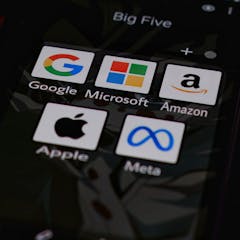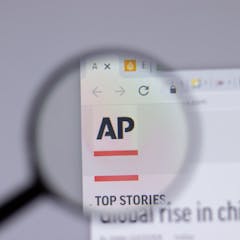
Articles on Journalism
Displaying 61 - 80 of 751 articles

A series of crises in the Canadian media sector will become a crucial test for what the country’s media landscape could and should look like in the 21st century.

Anna Funder’s new book, Wifedom, is a meditation on the insidious nature of patriarchy. Funder draws parallels between our #metoo era and the time of George Orwell and his wife Eileen.

A Treaty framework developed for New Zealand On Air offers a way for journalists to critically evaluate their own work and promote more accountable and equitable day-to-day reporting.

Australia’s law to force tech giants like Meta and Google to pay media organizations has not always meant better outcomes for journalism. Will the same happen in Canada?

Unlike a human editor, AI cannot explain their decisions or reasoning in a meaningful way. This can be a problem in a field where accountability and transparency are important.

The story of Anne Hamilton-Byrne’s cult The Family has been told in a non-fiction book and documentary, a novel, In the Clearing, and now a Disney+ series. What can stories like this teach us?

A new study of digital news consumption shows Canadians are avoiding the news more and trusting it less —especially in English Canada.

The kind of coverage favoured by South African media probably doesn’t do much to improve the public’s understanding of climate change.

Media Monsters deserves to stand among the giants of academic research and authorship on Australian media and political history.

The latest data shows a dramatic generational shift in the way people consume news.

Peter Enahoro, Nigerian journalist, columnist and author, died on 24 April 2023.

During Cooper’s long tenure as a senior executive, general manager and executive director, he changed the Associated Press and the news its readers and listeners depended on, in major ways.

Journalism only exists to serve the public, and every serious journalist feels this in their bones, just as we all know how often we fall short.

Stan Grant’s new book, The Queen is Dead, is revealing in terms of his decision to step down from public life. ‘I have been reminded what it is to come from the other side of history,’ he writes.

Racist abuse has forced Wiradjuri journalist, author and public figure Stan Grant to step away from the media. New research shows other diverse journalists have had similar experiences.

Fact-checking is important, but the contents need to be more visual to be able to attract more public audiences.

Dominion’s settlement of its defamation suit against Fox News provided a solution for Dominion – but it did nothing to help journalism.

Tucker Carlson and his employer, Fox News, had an incredible understanding of what their audience wants: a kind of authenticity that is not genuine but instead manipulative.

Calling media organisations ‘government-funded’ risks turning people away from reliable sources of information.

A scholar of Russia’s legal code explains the case against the Wall Street Journal reporter accused of espionage.
